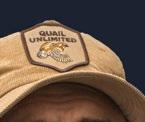

























































If you happen to run into Denver rapper DNA Picasso on the street, chances are he’ll be dressed in a bold, colorful hoodie with a dazzling chain hanging off his neck and a mouthful of gold teeth, ready to strike up a conversation about anything imaginable. But there’s one thing missing from the artist’s vivacious look: the color blue – and to DNA, it’s the color that seems to matter most.

When Devin Nyshawn Arnold takes on the identity of DNA Picasso, the confidence and glamor that come with it exude a degree of control and self-assurance that set apart the life of the artist from the life of the person behind it. “As much as I’d like to believe there is no difference between the two, DNA Picasso is my persona. That’s who people see and think I have everything put together,” he reveals in an interview with BandWagon. For Arnold, the creation of “DNA Picasso” represents a liberation from the constraints of being raised by other people, particularly as an individual who endured the instability of foster care and erratic relationships. “I get to take control of DNA Picasso, but Devin belongs to other people too.”
A reclamation of DNA’s purest self came with the release of his album, The Color Blü, in March 2023. DNA explains, “I just wanted
on display took center stage in this album, as he employed a vulnerable, soft approach to its themes and style. The Color Blü was DNA’s emotional deconstruction of what hiphop expects of an artist, as much as it was a vulnerable reach for purity of self. “In hiphop, we mask all of our truest feelings about ourselves and the world—especially when it comes to making something mainstream.”
The nuance of the album became so intensely personal to DNA Picasso that the work imminently diverged from Pablo Picasso’s Blue Period. One listen through The Color Blü reveals DNA’s angst and sorrow, juxtaposed by subsequent growth, love and energy. In this way, his artistry didn’t walk a line; rather, it jumped between both sides of that line. “It’s about vulnerability, not sadness,” he explains. The project effectively honors Picasso’s Blue Period without distorting it. The comfort of the love songs and the energy of the hype ones added a dimension to the roots of the album that DNA Picasso couldn’t ignore. “I originally was going to call the project The Blue Period, but Picasso wasn’t deeply in love, he was sad… I would be doing him a disservice by calling it that.”
DNA’s personal, vulnerable journey with this creation veered away from despair and
spite the love and vigor of the album, vulnerability inevitably scratches the surface of life’s more difficult places. DNA's honesty with himself manifested in an outpouring of the heavy feelings he carries with him from his experiences every day.
"I was driving to Boulder,” he remembers.. “At the time, I worked for a company that helped those suffering from homelessness and addiction. A police officer stopped me, and at first, the interaction was normal. But later, he came back to my car with his gun drawn, yelling so many things to do—it was all moving so fast. I thought I was going to die."
For DNA Picasso, infusing his music with a Black identity is not a decision. As an artist, he doesn't choose to write songs "from a Black place." Instead, he uses the voice of someone who experiences the world as Black to invite every listener to a place of understanding.
"I want to be heard because I know that it's special that I'm here," he says. "Being Black definitely gives me a different approach to music because it's me. It's who I am."
Just as people didn't frame Pablo Picasso's rigid, blue paintings on their walls, it can be difficult for a listener to digest the rawness of DNA Picasso's new album. However, the moments in the album where he acknowledges his growth and his newfound acceptance of love add a streak of vibrant beauty to the picture, and suddenly the listener can breathe in every lyric. Not only did DNA Picasso achieve his most thoughtful, artistic , but he also reached a higher place as a man. He credits his partner, Dominique Christina, as the person who triggered his growth and introduced him to love. This album was the first time he felt he could truly speak on love. The message he leaves us with is this: "Love is alive. Love is everything. I want to be loved, and I want to
Day Passes $40/50
After Party Featuring Próxima Parada $55 for All Day Pass + After Party
$30 for After Party Only
GreeleyBluesJam.org
More Blues Fri, June 2 in Historic Downtown Greeley











Doug Martsch is somewhere in Little Rock, Arkansas mid-tour with Built To Spill. He hasn’t ventured outside of the bus yet, but he hears it’s really hot. As the frontman for the Idaho-based band, the seasoned pro is used to the various elements thrown his way. After all, he’s been touring the world for more than 30 years. With the exception of 2020-2021 when the COVID-19 pandemic was wreaking havoc, he’s been pretty consistent, too. That’s a lot of miles—and a lot of cities. On May 10, the latest iteration of Built To Spill will grace the Aggie Theatre stage in Fort Collins once again. And unlike last time, the pandemic paranoia has (mostly) subsided.
“Last year, we toured a ton and and it was a little nerve wracking ‘cause Covid stuff was still on our minds,“ he says. “This time. This time, we really haven‘t thought much about it. It feels like that‘s kind of gone, although we know it‘s not. But we don‘t feel like our tour‘s about to get canceled at any moment. That was kind of the fear we had a couple years ago.“
Built To Spill—rounded out by bassist Melanie Radford and drummer Teresa Esguerra who both joined in 2019—has released nine albums since first forming in 1992. The lineup has changed multiple times over the years, but Martsch has remained its only consistent member, which makes sense. Without his unconventional singing voice, Built To Spill would be a different band. His highpitched, slightly off key vocals are one of the group’s most intriguing qualities. Beginning with 1993’s Ultimate Alternative Wavers and culminating with 2022’s When The Wind Forgets Your Name Built To Spill’s first album for Sub Pop Records—Martsch has managed to use his unique voice to his advantage. Still, there’s some early albums he doesn’t exactly revisit, including 1994’s There’s Nothing Wrong With Love.
“I have a hard time listening to it these days as a grown up adult,” he admits.
“The way my voice sounds just kind of drives me crazy really being that I really don’t sing like that anymore At the time when we made it, I was really excited about it. I think I was most excited about it than any other record I ever made before it. I was really proud of it.”
Even though Martsch’s voice has changed slightly over the years, he was always confident he could lead a band— maybe even to a fault. He adds, “I actually kind of thought I sang good, then I listened back to it and I realized I wasn't that good, but I felt like I was good and that and that I could do it. That's how I feel now. Like right now, I feel like I'm singing well, but I'm sure that in a few years if I listen to a recording from the tour, I'd be like, ‘Oh, that's what I sound like?’ So I think that's all you can do is just go with how you feel.”
Thirty years in, Martsch’s songwriting was bound to evolve. Now in his early 50s, his listening habits have matured as well. He finds himself gravitating toward ‘60s and ‘70s soul like Curtis Mayfield. He finds beauty in the simplicity.
“I have a lot different taste in music than I did when I was that age,” he says. “I'm trying to emulate more of the things I like now than the things I liked then. Yeah. Back in those days, I kind of would try to make weird chords. Nowadays, I just play regular standard chords and, I'm more influenced by soul music and things like that—simpler kinds of music than I was back then. So, that's it. I tend to write more like that.”
Changing tastes in music isn’t something that’s exactly easy to explain, but one thing about Doug Martsch, he’s going to try. He continues, “I don't know why my taste tastes have changed. I think it has something to do with as a teenager, hearing punk rock and new wave and stuff, it was interesting to hear people who were just different, wasn’t conventional. Like everything you heard on the radio, no matter what genre it was, everyone was really pro, and it was cool to hear things where people weren't pro anymore and just regular people doing stuff and coming up with weird things that you'd never hear other than in those places. That meant a lot to me growing up in the punk rock scene and seeing bands and other friends
who were musicians and stuff. But I also grew up with the radio, so I was kinda in both places a little bit. Then as I got older, I think I just have a better appreciation of a really good singer and really beautiful production.”


Built To Spill hasn’t written any new songs in awhile; they’re still promoting The Wind Forgets Your Name. But there are plans for the future.
“I haven't really written songs in a while, so I don't really have stuff ready to go,” he says. “I have a few older things and one new song from last summer. I would like to do some stuff. Me, Mel and Theresa have been trying to figure out a time we can all get together. I think it'd be really fun to write some songs and record with them. But yeah, lately I just haven't been too inspired or I've had other things going on in my life, but I think it'd be fun to get together with them.”
For now, Built To Spill is focused on the tour and just playing really good shows. Despite his tenure in the music, he still gets nervous before each set. That’s why he’s often seen beforehand setting up his own equipment.
“I think it just acclimates us to the stage and to the audience,“ he says. “It takes away that anxiety. And also I feel like it‘s kind of cool for some bands to do it, but it‘s really building it up and then the audience is so excited to see you. I don‘t really want the audience to be that excited to see me. That‘s too much pressure [laughs].“
Even so, Martsch is looking forward to playing Colorado. In fact, it holds a special place in his heart. As he explains, “I love playing in Colorado. The very first tour we went on for There's Nothing Wrong with Love, one of our last shows was in Colorado, but it was the first show of the tour that sold out. It was really exciting. There were way more people there than anywhere else on our tour and it kinda feels like every time we go there, there’s a nice crowd. I love it there.”












Sam Tallent is killing it. The Colorado-based stand-up comic has become a source of pride for many of those who witnessed his rise to the top of the comedic mountain—and likely the source of childish resentment from his peers in the comedy scene still frequenting open mics, as it goes all too often. However, anyone familiar with Tallent’s quick wit and overall demeanor can likely assume he’s not the least bit fazed by the latter company. His dreams have come true, but as they say, it’s a long way to the top.
Comedy isn’t easy. In fact, there’s a good chance you’ve seen a frazzled stand-up comedian lashing out at a heckler with the all too familiar, “You think this is easy?! Why don’t you try it?!”
Tallent, on the other hand, makes it look easy. One of his first memories is appearing in a home video at around three years old, sliding into the kitchen on his knees and proclaiming the classic, “I just flew in from Vegas and boy are my arms tired” line. It would seem Tallent was born for this, and hopped right on the gravy train still in pull-ups.
As one may guess, the road to international tours and a spot on The Joe Rogan Experience wasn’t exactly paved in gold. That’s right—Elbert County’s hometown hero was on a recent episode of Rogan’s podcast, where he spoke of hardships like eating leftover pizza out of the dumpster behind 7-11 and sleeping on floors for entirely too long before graduating to a futon.
Prior to rummaging through the trash for food, Tallent speaks of a happy childhood in small town Colorado with two adoring and funny-in-their-own-unique-ways parents. It should also be noted these are the same parents who had a wild and crazy night with a case of Zima in Glenwood Springs, which directly resulted in the conception of our subject.
Tallent got where he is now with his inher ent ability to make others laugh, paired with a lot of hard work. He powered through hor ror-story gigs involving things like “Duck Shit Bingo” before doing things like hosting Film on the Rocks, opening for fellow successful
Colorado-based comic Josh Blue, as well as someone who would eventually help change Tallent’s world forever, Mr. Fourth Most Famous Host of The Man Show himself, Doug Stanhope.
The pandemic changed everything. We all know which one. Most of the results were undoubtedly negative, but COVID ended up being, in a roundabout way, a catalyst for the thing that would catapult Tallent into the mainstream.

Tallent is an intelligent, book-loving, short story-writing kind of guy, and during an especially lonely and boring stint living in Las Vegas while his wife attended medical school, he started writing a book. But it wouldn’t be until a few years later when all of his gigs were cancelled due to COVID that the comic found himself motivated enough to finish his novel.
Running the Light is a cautionary tale focused around a fictional stand-up comedian Tallent describes as “treacherous,” “nasty” and everything he fears becoming. Tallent himself describes the work best, saying, “It’s very bleak. I’m very proud of it. It’s still the best thing I’ve ever done in any aspect of artistic output.”
Upon finishing Running the Light, Stanhope took the lead, sharing it with his comedic contemporaries including Bert Kreischer and Marc Maron. Stanhope went even further, inviting Tallent to his compound where

cretly maintaining an extraordinary level of intelligence.
Tallent appeared on the Ed Sullivan Show for modern comics, The Joe Rogan Experience, on April 11. It would be completely understandable for any comedian that wasn’t close friends with Rogan to be nervous, but our boy was cool as a cucumber. Even if he was nervous, the comedian certainly didn’t appear so, as his quick wit shone through the entire duration of the episode, dropping casual quips of comic gold throughout.
The pair discussed current events and thought-provoking topics with eloquence and peppered-in f-bombs, taking sips of Bud Light and a spoonful of something called Mad Honey in between. This top-of-the-comedian-mountain sit down with Rogan, along with all of the other huge successes Tallent has had over the past two years, are things he all attributes to his book.
Today, Running the Light is an Audible bestseller, and Tallent is selling out venues in Australia. However, as successful as the funny man has become, and no matter what the future holds for him, it’s pretty unlikely he’ll ever forget his roots. After all, he did tell Rogan and the rest of the world about his parents knocking boots in Glenwood Springs tore up on Zima.
Insert one more clever pun about having “Tallent” here.
Tickets: ALL SS+ CONCERTS ARE ONLY $35/45*










*While supplies last. All arena event prices increase June 15.









All concerts are included with park admission or arena event ticket to add to your experience!






presented by june 22 - july 4 greeleystampede.org



+Listen to the official ss+ playlist powered by big 97.9






clear bag policy in place for All arena events.







*All bags entering the park are subject to search
Don’t get scammed! Watch for third party sites and unauthorized ticket sales! When buying your tickets, be sure to go to greeleystampede.org to ensure you are getting the best price and legitimate tickets. Tickets purchased from third party sites will not only be overpriced, they will not get you into the event you are hoping to enjoy.






